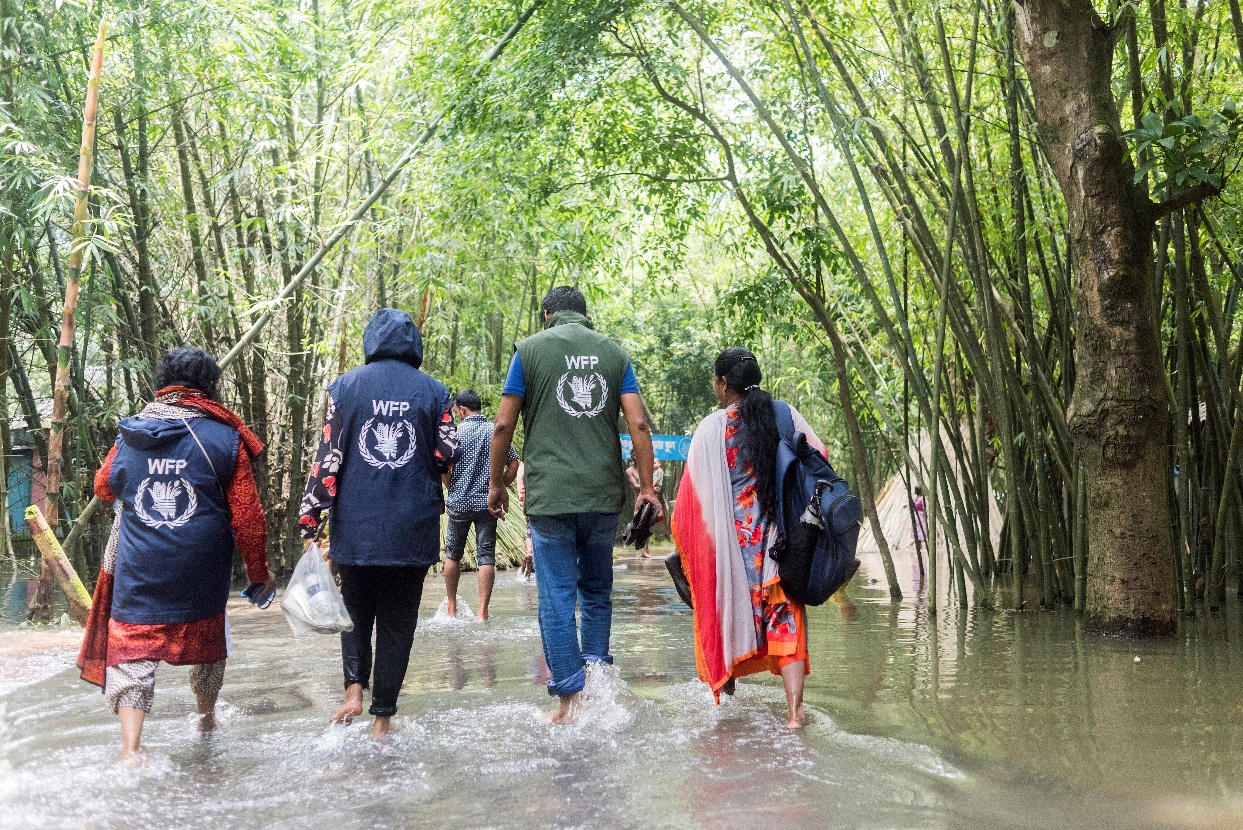Context
In July 2020, severe monsoon floods in Bangladesh threatened to displace communities, destroy livelihoods, and damage infrastructure. These floods, considered among the most prolonged and severe in decades, highlighted the vulnerability of rural, low-income households dependent on agriculture and livestock. Bangladesh’s geography, characterized by vast river basins and frequent exposure to cyclones and floods, makes it highly susceptible to such events. Traditional disaster responses often arrived too late to prevent significant losses, emphasizing the need for early, proactive measures. Anticipatory action enables households and communities to prepare and strengthen their resilience ahead of climate-related shocks.
World Food Programme (WFP), leveraging accurate hydrological forecasts, implemented an anticipatory action initiative. This initiative used upstream water flow predictions to identify areas likely to experience flooding, enabling proactive engagement with affected communities before the peak of the disaster. The innovation lay in delivering cash transfers through digital mobile money systems, ensuring resources reached those in need swiftly.
WFP partnered with bKash, a leading digital financial service provider in the country to implement the scheme. BKash facilitated the rapid distribution of cash transfers to vulnerable households, ensuring that funds were accessible before the peak of the floods. This collaboration between humanitarian organizations and bKash highlighted the effectiveness of collaboration between UN agencies and national private companies, leveraging fintech solutions for disaster preparedness and response.
Outcome
WFP’s intervention revolved around mobile-based anticipatory cash transfers. Using pre-registered lists of vulnerable households, over 23,000 families received 4,500 Bangladeshi taka (approximately two weeks of household food expenses) via bKash. The approach was activated in two stages:
- Preparatory Phase (10 Days Prior): Early warnings triggered preparations, including community alerts and finalizing cash transfer logistics.
- Activation Phase (5 Days Prior): Funds were distributed to enable families to stockpile essentials, safeguard livestock, and evacuate vulnerable members.
This anticipatory action significantly enhanced household resilience:
- Reduced Food Insecurity: Recipients were 52% less likely to go a day without food during the flood and reported higher meal frequency even three months later.
- Protected Livelihoods: Families could relocate livestock and secure crops, reducing economic losses.
- Improved Well-being: Surveys indicated higher life satisfaction and better recovery trajectories for participating households compared to non-recipients.
Local businesses also benefited, as cash transfers fuelled market activity. By supporting bKash, the initiative strengthened private-sector infrastructure critical for scalable disaster responses. The efficiency of mobile transfers demonstrated the potential for public-private collaboration in disaster preparedness.
Building on this innovative intervention, WFP, in collaboration with the Government of Bangladesh and bKash, can now activate anticipatory action to protect lives and livelihoods whenever necessary. For example, in May 2024, in anticipation of Cyclone Remal, 150,000 people in Bangladesh’s southern coastal regions received anticipatory cash transfers, while more than 3 million were supported with early warning messages.
Key Takeaways
- Early and anticipatory action saves lives and livelihoods: Timely anticipatory interventions mitigate the impact of disasters, reducing food insecurity and long-term economic losses.
- Cash assistance as a key response modality: Cash transfers, complemented by other key actions such as early warning messages, infrastructure support, and civil and social protection services, serve as a rapid, effective, and adaptable response mechanism to enhance household and community resilience.
- Leveraging technology: Mobile money platforms enable rapid, efficient, and scalable cash distribution, critical for disaster-prone regions.
- Collaborative networks: Partnerships between governments, NGOs, and businesses can enhance community and household preparedness and response mechanisms.
- Continuous improvement and scalability: Investing in forecasting systems and pre-disaster registries can further optimize such initiatives, minimizing delays in reaching affected communities, and improve the capacity to scale up anticipatory action.
This case highlights how businesses, particularly those in fintech, can play a pivotal role in disaster risk reduction, transforming traditional humanitarian responses into proactive, community-centric solutions.

